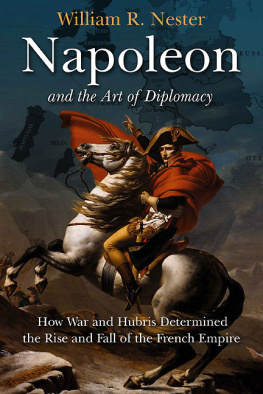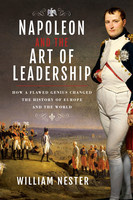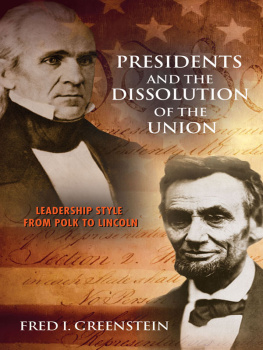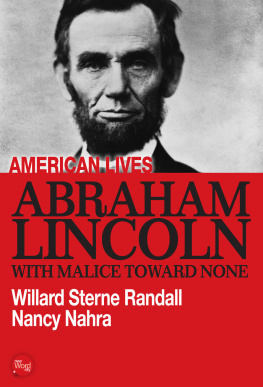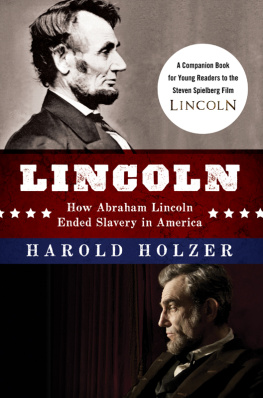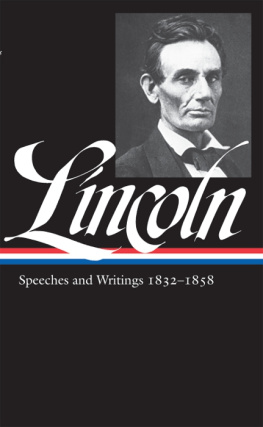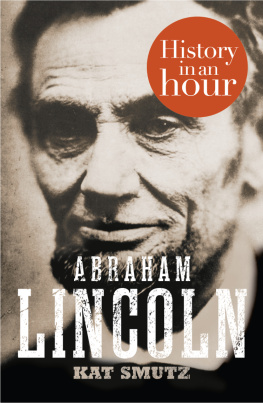ABBREVIATIONS
Grant Memoirs | Ulysses S. Grant. The Personal Memoirs of Ulysses S. Grant. Princeton NJ: Collectors Reprints, 1998. |
Lincoln Works | Roy P. Basler et al., eds. The Collected Works of Abraham Lincoln. 9 vols. New Brunswick NJ: Rutgers University Press, 185355. |
Lincoln Writings | Allan Nevins, ed. The Life and Writings of Abraham Lincoln. New York: Modern Library, 2000. |
Official Records | War of the Rebellion: A Compilation of the Official Records of the Union and Confederate Armies. 70 vols. Washington DC: Government Printing Office, 18801901. |
1
Eighteen Forty-Eight
Allow the President to invade a... nation whenever he shall deem it necessary... and you allow him to make war at pleasure.
ABRAHAM LINCOLN
We were sent to provoke a fight, but it was essential that Mexico should commence it.
ULYSSES S. GRANT
Boys, I believe I have found a gold mine.
JAMES MARSHALL
We hold these truths to be self-evident: that all men and women are created equal.
DECLARATION OF SENTIMENTS
This is the end of the earth, but I am composed.
JOHN QUINCY ADAMS
As 1848 dawned, the nations most pressing and divisive issue was the ongoing war against Mexico. This conflict appeared close to ending. American troops had routed the Mexicans in nearly every battle and had overrun New Mexico, California, northeastern Mexico, and the strip of land from Veracruz to Mexico City. Gen. Winfield Scott and his victorious army occupied the capital. Fighting had ended on all fronts and the soldiers now anxiously waited as the diplomats haggled.
While virtually all Americans took pride in how decisively their armies had crushed the enemy, they heatedly debated what spoils, if any, to take from Mexico. Most Whigs wanted a victory without conquest. Everyone else wanted territory to justify the loss of blood and treasure but split over just what to take. Some Whigs and most Democrats were content with keeping New Mexico, California, and a Texas boundary at the Rio Grande; some Democrats insisted on adding to that the Baja Peninsula and a swath across northern Mexico; and a few Democrats demanded all of Mexico.
As vexing was the question of whether slavery should be permitted or forbidden in whatever land was taken. The United States was then composed of fifteen slave states across the South and fourteen free states across the North. Most southerners were dead-set to retain their edge, terrified that if they lost it the free states might one day vote to abolish slavery. This fear, then and for many years to come, was irrational. Most northerners at once abhorred and accepted slavery where it currently existed but opposed its expansion to new territories that would eventually be transformed into states, each with two senators. If that happened, the northern fear, also unfounded, was that southerners would vote to legalize slavery everywhere across the United States. David Wilmot, a Democratic congressman from Pennsylvania, tried to preclude that on August 8, 1846, by amending an appropriation bill with the Wilmot Proviso that forbade slavery in any territories won from Mexico. Although a majority in the House of Representatives voted for this bill and subsequent ones with the Wilmot Proviso attached, Senate majorities stripped the bills of the measure, so it remained a popular sentiment rather than law.
Finally, a small but vocal minority argued that America should never have warred against Mexico in the first place and condemned the Polk administration for stampeding Congress into a war of aggression rather than necessity. A freshman representative from Illinois was among these latter voices.
For the second time in his life, Abraham Lincoln stepped behind the podium in the House of Representatives on January 12, 1848. Although
Lincolns ire was partly aroused by the Polk administrations silence toward his maiden speech of December 22, 1847, when he eschewed the customary expression of gratitude and dedication to his constituents and the nation. He chose instead to raise a contentious issue whereby he took an unpopular minority stand. He proposed a resolution that required the president to prove that Mexican troops had invaded and shed American blood on American soil, Polks key justification for asking Congress for a war declaration in May 1846.
If the White House ignored Lincolns proposal, Congress did not. On January 3, 1848, George Ashmun of Massachusetts was inspired to offer a more explicit resolution that the war had been unnecessarily and unconstitutionally begun by the president of the United States. Lincoln joined eighty-five fellow Whigs in voting for this resolution.
Lincoln and the wars other opponents defied the views of most Americans, including William Herndon, Lincolns law partner. Herndon upheld the Polk administrations position that the border of Texas rested on the Rio Grande, not the Nueces River 150 miles farther north, as Mexico claimed. Thus the Mexicans invaded American territory by crossing the Rio Grande and started the war when they attacked part of Gen. Zachary Taylors army. In his reply to Herndon and other critics, Lincoln argued that the land between those rivers remained Mexican because its mostly Mexican inhabitants had not joined the Texas rebellion. He cited the terrible precedent cast by the Polk administration: Allow the president to invade a neighboring nation, wherever
Although Lincoln condemned the war, he lauded the soldiers who fought it: Our arms have given us the most splendid successes, every department and every part, land and water, officers and privates, regulars and volunteers, doing all that men can do, and hundreds of things which it had ever before been thought men could not do. He dutifully voted for every war appropriation bill.
Lincoln, then an obscure freshman congressman, was not the only war opponent who would eventually rise to the political pinnacle. Ulysses S. Grant was then a young army captain who had no doubt over just who started the war: The presence of United States troops on the edge of the disputed territory furthest from the Mexican settlements was not sufficient to provoke hostilities. We were sent to provoke a fight, but it was essential that Mexico should commence it. After Congress declared war, Grant was bitterly opposed to the measure and to this day regard[s] the war which resulted as one of the most unjust ever waged by a stronger against a weaker nation.
It takes a powerful will and sense of principle to oppose a war that ones government and most fellow citizens zealously favor, at least initially. Grant understood that: Once initiated there were but few public men who would have the courage to oppose it. Experience proves that the man who obstructs a war in which his nation is engaged, no matter right or wrong, occupied no enviable place in history.
In opposing the war with Mexico, Lincoln boldly set himself against the literal march of American history. If imperialism is the conquest of one people by another, then America has been imperialistic from its beginning. The English colonists took land from the Indians and over the next century and a half expanded their holdings to the Appalachian Mountains and in some places beyond. After winning its war of independence, the United States carried on that imperialism. Most Americans at once exalted in their nations swelling borders while denying the often deceptive, brutal, and dishonorable means whereby it unfolded. Proponents justified expansion in various ways. Thomas Jefferson proclaimed America an empire of liberty that benefited all peoples within its embrace. In 1845 John OSullivan, the


